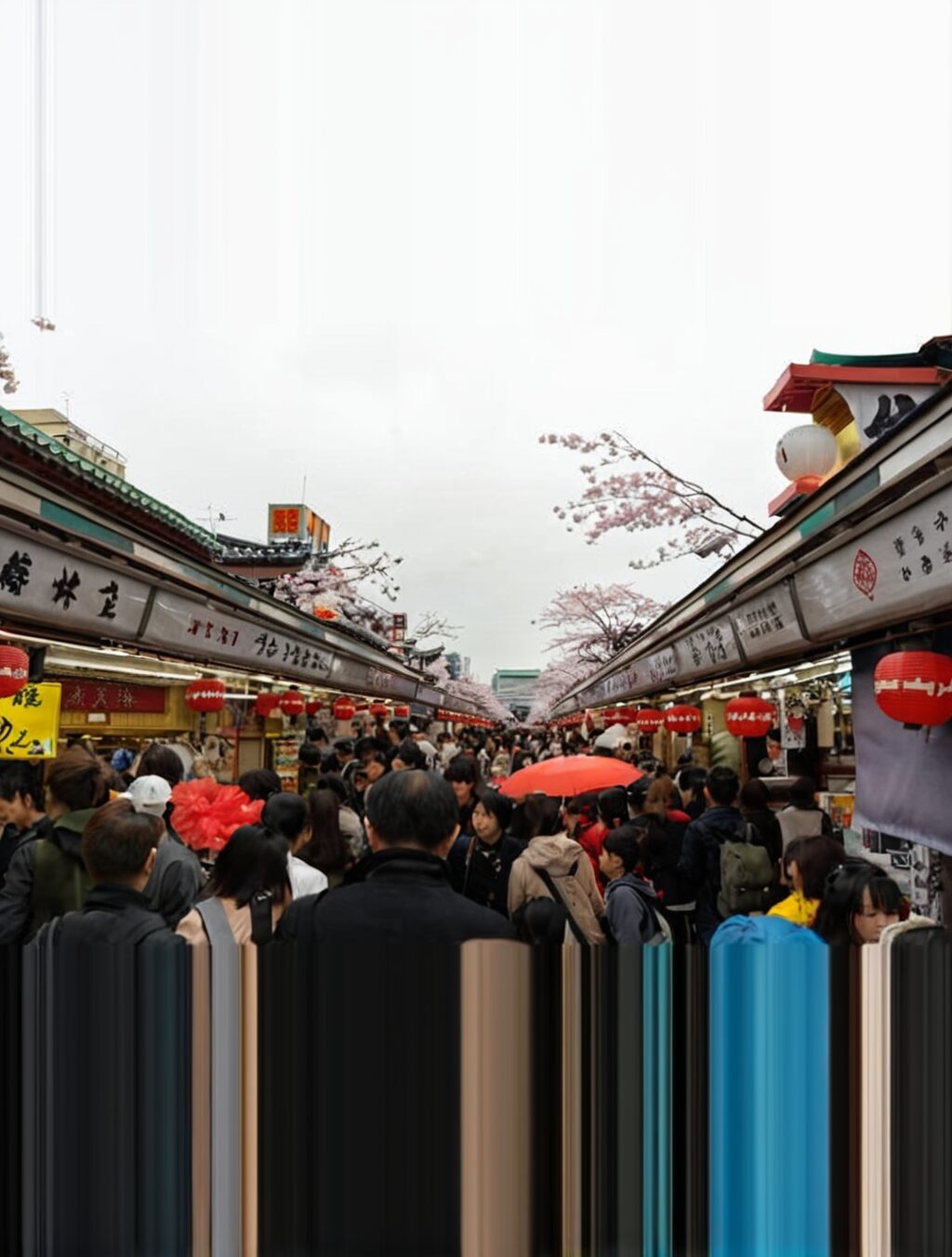**Moving to Japan: Culture Shock 101**
Win a Free Trip to Japan!
Experience cherry blossoms and ancient temples
Are you planning to make the big move to Japan? Get ready for a world of wonder and culture shock! From bowing to slurping noodles, here’s your survival guide to Japanese customs and etiquette.
- Learn the art of bowing: It’s not just a head nod – it’s a whole body thing! The deeper the bow, the more respect you show.
-
Embrace the etiquette of eating: Slurp your noodles with pride – it’s a sign of appreciation! But don’t reach across the table – use your chopsticks to pass dishes instead.
-
Dive into the bathhouse culture: It’s not just about getting clean – it’s a social experience. Just remember to wash thoroughly before taking a dip.
-
Master the language of gestures: From pointing with your whole hand to using chopsticks as conversation tools, gestures speak volumes in Japan.
-
Respect personal space: In crowded Japan, personal space is precious. Avoid standing too close or touching people you don’t know.
-
Embrace the unique sense of humor: Japanese humor can be quirky and understated. Don’t be afraid to laugh at the unexpected!
-
Pack your patience: Adjusting to a new culture takes time. Embrace the challenges and ask for help when needed.
-
Dive into the local festivals: From cherry blossom viewing to summer fireworks, Japan’s festivals are a vibrant way to immerse yourself in the culture.
FAQs:
- What do I do if I accidentally offend someone? Apologize profusely and try to understand their perspective.
-
How do I make Japanese friends? Join clubs, attend local events, or practice your Japanese with language exchange partners.
-
Is it okay to use English in Japan? While some English is spoken in major cities, learning basic Japanese phrases will show respect and help you connect with locals.
Conclusion:
Moving to Japan is an exhilarating adventure, but culture shock is a real thing. By embracing these customs and etiquette tips, you’ll navigate the challenges and enjoy the incredible journey of immersing yourself in a fascinating new culture.
**Culture Shock Japan vs America: A Tale of Two Worlds**
Moving from the bustling streets of America to the serene temples of Japan can be a mind-boggling experience. Here’s a deep dive into the culture shocks you might encounter:
- Communication styles: Americans tend to be direct and expressive, while Japanese communication is more indirect and nuanced. Learn to read between the lines and avoid being too blunt.
-
Social etiquette: In Japan, politeness is paramount. From bowing to using honorifics, there’s a strict code of conduct to follow. Embrace it and show respect to those around you.
-
Dining customs: Japanese dining etiquette is a world of its own! Slurping noodles, sharing dishes, and avoiding chopsticks as utensils – these are just a few of the unique practices you’ll encounter.
-
Personal space: In crowded Japan, personal space is a luxury. Be prepared for close encounters in public places and avoid standing too close to others.
-
Gift-giving culture: Gift-giving in Japan is an art form. Learn the proper etiquette, from wrapping to presenting, to show your appreciation and avoid any faux pas.
-
Work culture: Japanese work culture is known for its long hours and dedication. Be prepared to work hard and respect the hierarchy within your company.
-
Fashion sense: Japan’s fashion scene is vibrant and unique. From traditional kimonos to cutting-edge street style, there’s something for everyone. Embrace the local trends and experiment with new looks.
-
Language barrier: While English is spoken in major cities, learning basic Japanese phrases will go a long way in breaking the ice and connecting with locals.
FAQs:
- Is it easy to make friends in Japan? Yes, but it takes time and effort. Join clubs, attend local events, or practice your Japanese with language exchange partners.
-
How can I avoid culture shock? Research Japanese customs and etiquette before you go. Be open-minded, respectful, and willing to learn.
-
What’s the biggest culture shock I’ll face? The indirect communication style and the importance of politeness can be challenging for Americans.
Conclusion:
Culture shock is an inevitable part of moving to Japan, but it’s also an opportunity for growth and discovery. By understanding the key differences between Japanese and American culture, you can navigate the challenges and embrace the beauty of this fascinating country.
**Culture Shock in Japan: Real-Life Examples**
Moving to Japan can be a whirlwind of unexpected experiences. Here are some common culture shocks you might encounter:
- The art of bowing: Bowing is an integral part of Japanese culture, but the depth and duration of the bow can be confusing. From a slight nod to a deep, prolonged bow, each situation calls for a different level of respect.
-
Slurping your noodles: In Japan, slurping your noodles is not considered rude – it’s a sign of appreciation for the chef! Embrace this unique dining custom and enjoy the symphony of flavors.
-
The importance of silence: While Americans tend to fill silences with chatter, Japanese culture values quiet moments. Learn to appreciate the beauty of silence and avoid interrupting conversations.
-
Personal space: In crowded Japan, personal space is a luxury. Be prepared for close encounters in public places and avoid standing too close to others.
-
The language barrier: Even in major cities, English is not widely spoken. Learn basic Japanese phrases to communicate effectively and show respect for the local culture.
-
Gift-giving etiquette: Gift-giving in Japan is an art form. From the wrapping to the presentation, there are specific rules to follow. Study the etiquette to avoid any faux pas and show your gratitude gracefully.
-
Work culture: Japanese work culture is known for its long hours and dedication. Be prepared to work hard and respect the hierarchy within your company.
FAQs:
- How can I minimize culture shock? Research Japanese customs and etiquette before you go. Be open-minded, respectful, and willing to learn.
-
What’s the most challenging culture shock I’ll face? The indirect communication style and the importance of politeness can be difficult to adjust to for non-Japanese speakers.
-
Is it easy to make friends in Japan as a non-Japanese speaker? Yes, but it takes time and effort. Join clubs, attend local events, or practice your Japanese with language exchange partners.
Conclusion:
Culture shock is a common experience when moving to Japan, but it’s also an opportunity for personal growth and cultural immersion. By understanding and embracing these examples of culture shock, you can navigate the challenges and fully appreciate the beauty and uniqueness of Japanese culture.














